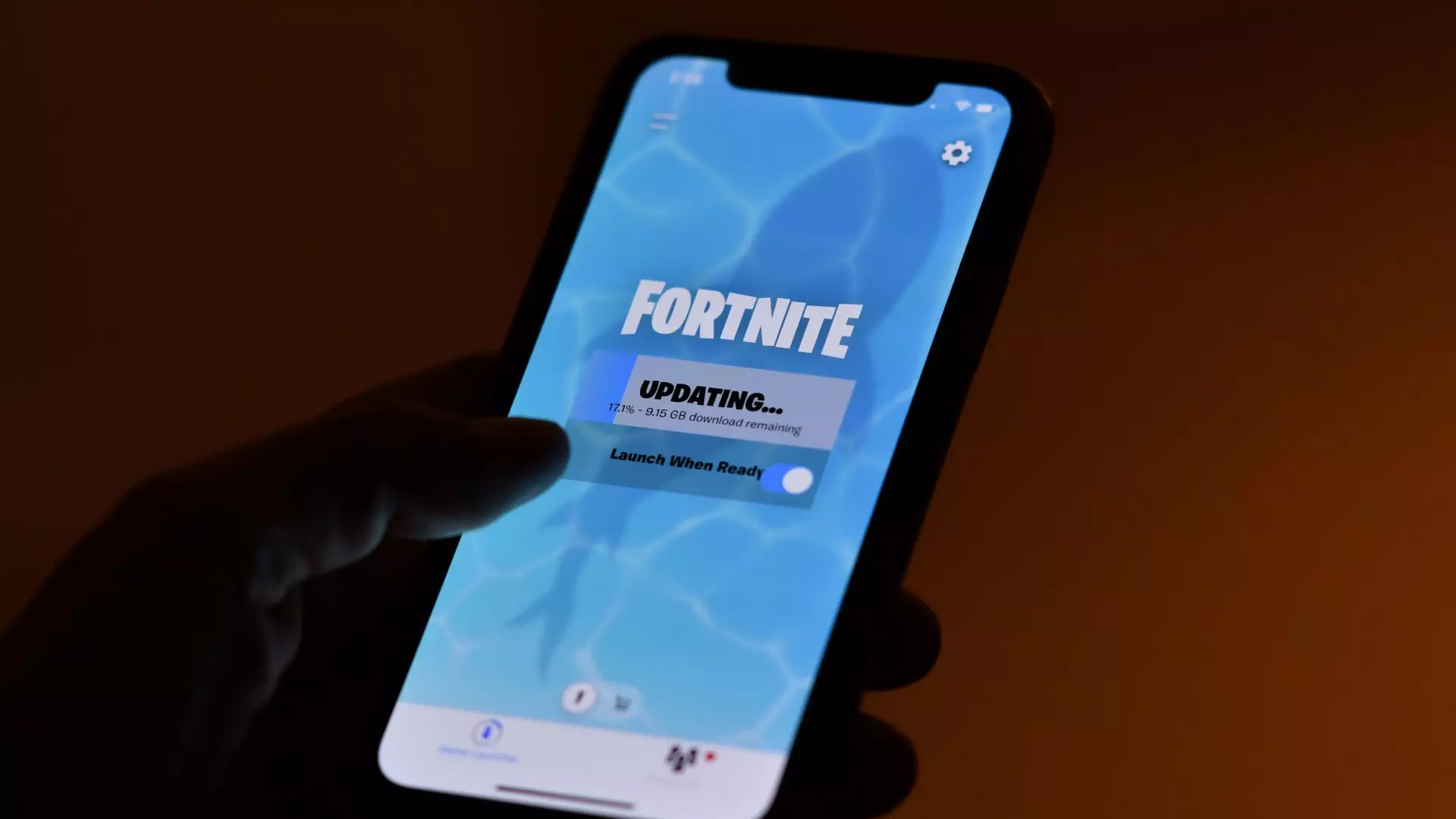The tangled saga between Apple and Epic Games has spiraled further into the courtroom, illustrating a disconcerting trend of corporate overreach and a stark lack of accountability. The dispute, centered around the beloved game Fortnite, has ignited passionate debates about app distribution, developer rights, and consumer choice. As Judge Yvonne Gonzalez Rogers remarked, Apple possesses the capacity to resolve this conflict without further legal proceedings. Yet, the question remains: why has Apple opted for a path that seems to flaunt its power?
The recent blockade of Fortnite’s re-submission by Apple raises eyebrows and warrants scrutiny. Epic Games’ response, filing a motion to enforce an earlier court injunction, is a testament to their commitment to challenging what appears to be Apple’s obstructionist tactics. This also highlights a broader pattern of behavior where tech giants disregard judicial directives when it suits their financial interests. Apple cannot simply persist in ignoring the existing legal framework, especially when it has been previously found at fault for its monopolistic practices.
The Implications of Legal Maneuvering
From a legal standpoint, Apple’s attempt to delay the reinstatement of Fortnite on its platform is both perplexing and frustrating. The Ninth Circuit Court’s failure to grant Apple a stay of the injunction merely complicates matters further. This unwillingness to adhere to a clear judicial order suggests a troubling attitude within Apple’s corporate culture: one that prioritizes control over consumer benefits. If a company of Apple’s stature, which should ideally set a positive precedent in compliance and ethics, fails to uphold court rulings, what does that say about the integrity of our legal systems?
Judge Rogers’ warning that an Apple executive may be required to appear in court signals a point of urgency. The idea that high-ranking officials could be made to account for their company’s actions is significant. Still, it raises several questions. Shouldn’t the company’s overall behavior be influenced more by internal compliance culture rather than the threat of punitive measures? The fact that this situation has escalated to such a level indicates a broader issue within tech titans: they often feel untouchable, resulting in an environment ripe for abuses of power.
Consumer Rights vs. Corporate Control
At the heart of this dispute lies the broader conversation about consumer rights and corporate control in the digital age. Apple’s tight grip on its App Store ecosystem is not just a matter of maintaining orderly operations; it raises fundamental questions about who gets to dictate terms in a space that is crucial to modern life. The implications of this legal battle extend far beyond Fortnite; they represent the interests of countless developers who find themselves at the mercy of Apple’s unilateral decisions.
While Apple defends its policies as necessary for security and quality control, one must consider the inherent imbalance created by its strict regulations on app distribution. The lack of alternative pathways for developers to reach consumers limits competition and innovation, creating a scenario in which the app ecosystem is not as diverse or vibrant as it could be. The resistance from companies like Epic Games serves as a wake-up call. If consumers wish for fairer practices, they must rally behind developers pushing against barriers erected by corporate giants.
The Role of Public Sentiment
As the saga continues, public sentiment also plays a crucial role. Tim Sweeney’s characterization of Apple’s indifference toward Fortnite’s re-submission underscores a shifting narrative in public opinion, especially among younger, tech-savvy consumers who demand transparency and fairness. The outcry from players and developers alike questions how much longer technological behemoths can ignore the voices of those who fuel their very existence.
Checking Apple’s corporate hubris involves more than just legal battles; it requires an ongoing dialogue among consumers, developers, and lawmakers. The future of digital commerce hinges on how effectively society can hold these entities accountable for practices that stifle competition and, ultimately, harm the user experience. Without a collective demand for change, Apple may continue down this path, unchallenged and unchecked.
Ultimately, the ongoing dispute between Epic Games and Apple is about more than just a single game; it represents a crucial digital battleground for fairness, accountability, and the rights of both developers and users in an era increasingly dominated by monopolistic tendencies.


Leave a Reply